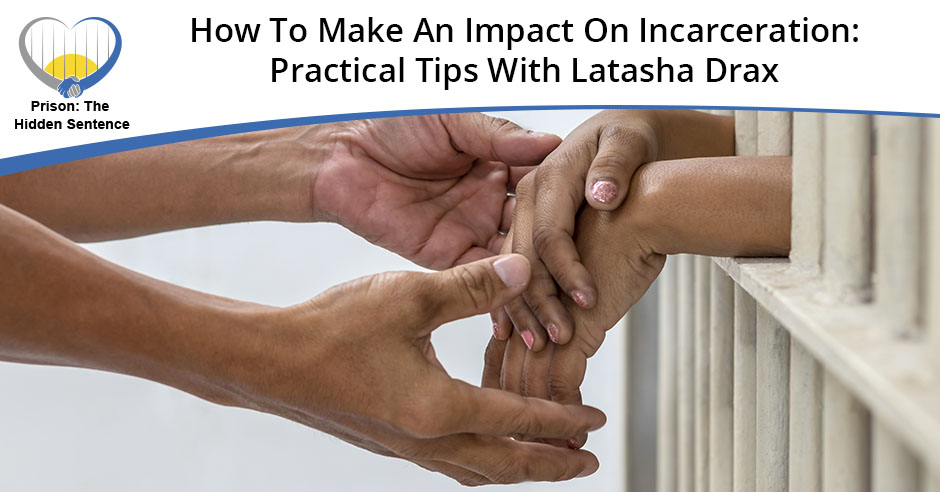
How do you make an impact on mass incarceration? Testify your story, and don’t put so many expectations on your incarcerated loved one. Julia Lazareck’s guest in this episode is Latasha Drax, the founder of I.M.P.A.C.T. Beyond the Wall. Latasha is committed to helping build families and strengthen relationships impacted by incarceration. She was married to her husband for 16 years while he was incarcerated. Latasha shares her journey towards healing, not only for herself but for others, too. I.M.P.A.C.T. stands for Inmates Marriage, Parents and Children Testify. She believes that everyone should testify and tell their story. Tune in and be inspired by Latasha’s story!
—
Listen to the podcast here:
How To Make An Impact On Incarceration: Practical Tips With Latasha Drax
I’m here with Latasha Drax, who is a writer, teacher and advocate from Brooklyn, New York, and she lives in Virginia. She’s committed to helping build families and strengthens relationships impacted by mass incarceration. She was married to her husband for sixteen years while he was incarcerated. She’s here with us to share her journey towards healing, not only for herself, but for others, too. Latasha, thank you for being here.
Thank you so much, Julia, for having me.
I’m so glad you were able to take time out of your busy schedule to join us. I’m looking at everything you’ve done as a writer, teacher, and advocate, and you’re always looking for ways to improve the lives of others. Let’s start with your endeavors. You said that you received your Master’s in Government with a concentration in Law and Public Policy. What motivated you to get this degree?
That was a journey. I was encouraged to get my Master’s in Government because I am a career educator. My background for over fifteen years has been in education. As I started to get involved with advocacy, law, legislation, and things that dealt with mass incarceration, I realized that I wanted to transition from career and education into that space.
It reached a lot of obstacles trying to transition because of my career as an educator. I felt that having that degree would not only give me more credibility, but helped me to understand the inner workings of government and how laws and policies are shaped, so that I can be a better advocate and a stronger activist in the community.
That sounds like a valuable degree that’s going to help you so much understanding a lot of the systems that are out there, and enable you to help more people. Congratulations on that degree.
Thank you.
You also have a group that’s called I.M.P.A.C.T. Beyond the Wall. Can you tell us why you started that?
I started I.M.P.A.C.T. probably around 2009, 2010, from the church that I attended in Florida. I used to live in Florida. I realized as they were having life groups and small groups for different individuals within the church singles, married, young adults and so on and so forth, that there wasn’t a group that fit my mold that I couldn’t identify with any of those groups.
They even had most churches have a prison outreach ministry, where they go into the prison and minister to those that are incarcerated, but there was never anything for the family. I proposed to the leadership at the church at that time that I wanted to start a group that catered to the needs of the families of those who were incarcerated.
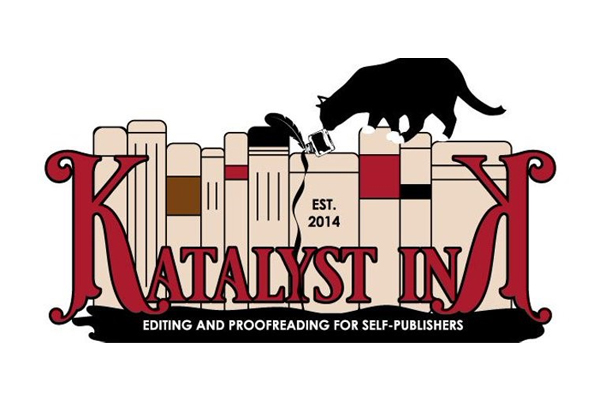
They were taken aback because it was something that they didn’t think mattered. I started it and that began that space of families who either had a child in prison, who were married to someone in prison like myself, who were able to come and find support that they hadn’t found otherwise, and that’s how I.M.P.A.C.T. was started.
I wondered what I.M.P.A.C.T did for. Tell me if I got this right. It stands for Inmates, Marriage, Parent And Children Testify.
Testifying to their story. We know that when a person who is going before a judge and jury and they’re giving their testimony and everything like that. Families of incarcerated people have their testimonies. They have their own stories and often, their voices are not heard. That’s the concept behind it. If I’m married to someone, if I’m a parent or if I’m a child, I have a story. Hear me just as well as you’re hearing them, because my life matters in this situation as well, and so we have a story to tell.
You said that your husband was incarcerated for sixteen years when you were with him.
Yes. He was incarcerated during that time. I’m marrying him while he was incarcerated. He was a childhood lover of mine. We’ve known each other since I was about fourteen. I married him while he was in prison and he was in prison for twenty-seven years.
What was that like when he was incarcerated?
I don’t want to romanticize it or anything of that nature, because obviously there are challenges. Challenges for not being able to see, touch, or even speak to your significant other on a regular basis. The phone calls, traveling, and expenses that all of that concur. The loneliness and lack of companionship for different events that you need a companion.
The fact that he was in New York and I wasn’t living in New York, so that meant that my expenses were a little bit more. We did have trailer visits, a family reunion program. New York, it’s one of very few states who allow conjugal visits, so we were able to have conjugal visits, which gave it a different dynamic.
Emotionally, it’s isolating. It’s lonely because there’s a stigma attached. I spent the majority of my marriage not sharing any information with anyone. If someone asks me, I’m proud. I’m Mrs. I was proud to say that I was married, but wasn’t proud to say where he was. It’s easy for people to judge the person because they’re incarcerated, and then it’s even easier for them to judge you because you’re married to someone who’s incarcerated. My story would always be, “He was in New York. We lived in separate places.” Only a select few were fully aware of my situation that I trusted and my group through the church. It’s guarded, probably the same experience that they have while they’re incarcerated themselves.
Testify your story and let your voice be heard. Share on XHow did you get through it?
Being active. Having community. Having an organization like I.M.P.A.C.T. Find a community among like-minded people, being very engaged in life itself. Spending time with family and friends. My son was younger at that time. Investing myself in raising my son to the best of my ability without a spouse that was beside me.
Being active in church or at work, constantly working. Getting letters from my husband at the time and being close with his family. It becomes this routine and monotony, but then there are still times when you’re struggling because I need a little bit more money and I don’t have it. I feel like I want to hug or cuddle this evening and I can’t. There’s this event that I want to attend and everyone is bringing a plus one and I don’t have one.
It became the normalcy of life that I missed out on, but at the same time, I tried to have a life outside of incarceration that I could engage in. I’ve been blessed to do so many things that have brought me fulfillment where those years weren’t that insufferable for me. That’s very important. That’s one of the things that I do encourage families that I work with. Make sure that you have something that you’re doing that brings you the fulfillment that is not all wrapped up in your incarcerated loved one, because you can get lost and so consumed with life behind the wall that you forget to live beyond the wall.
A lot of us that have had loved ones incarcerated can relate and people that haven’t. Hopefully, they can get an understanding of what an impact it is to the family. A lot of people don’t realize that. With your church, when you want to start that group, it’s something people don’t think about how the families are affected. This I.M.P.A.C.T. group is helpful in helping people and advocating. It seems to me that while he was incarcerated, one of the things that helped you was helping others.
We added Beyond the Wall and it started off just I.M.P.A.C.T. I say that I.M.P.A.C.T. Beyond the Wall serves you in time, love, and freedom throughout the whole process of incarceration, because it is our hope and desire that everyone comes home. At the end of that sentence, you need as much support after incarceration that you needed during incarceration. Unfortunately, sometimes those supports are not enough that they have. As much as the person that comes home from prison needs support, those family members need that support to help transition.
It’s not just a transition for the person who came home. It’s a transition for the people that received them home. How do they embrace them, deal with them, and cope with the changes that they’re going to go through? How does those change that they go through impact your livelihood? You need support throughout the whole process.
I say with I.M.P.A.C.T., incarceration leaves a void. Not only the void in the person who is incarcerated, it leaves the void in the family and community. How do you fill that void? My whole path has always been that I.M.P.A.C.T. fills the void with that love, support, encouragement, and those solutions that we need in order to cope through this process and this journey. There’s a void that needs to be filled, and this void is oftentimes seen even when they come home and incarceration does that. We try our best to fill that void that it leaves.
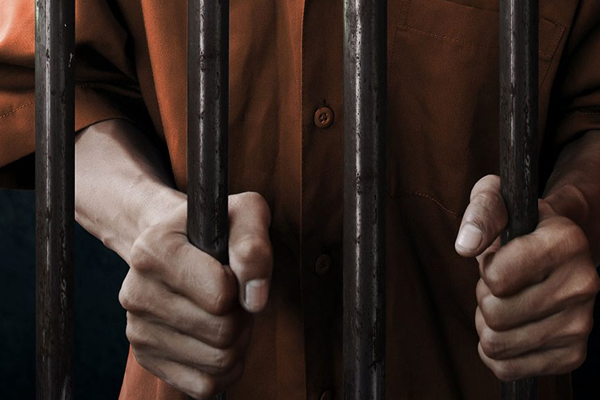
One of the things that you’ve got to start preparing the family for when the loved one comes home. What are the things that you can suggest for people to prepare for when their loved ones are coming home?
At this point, I’m on my journey with my husband. I mentioned before imposter syndrome to someone. I don’t know if it was you, but it’s like when you start to approach something new or novel in your life and you feel inadequate or eloquent. I felt like I was equipped and prepared to receive my husband when he came home.
We do all the normal things, make sure that they have a home that they come to that is appropriate living conditions. Setting up a network for employment and making sure all of those basic things are available. One of the critical things and pieces that we miss is the mental health of the person that’s coming home and the family members.
We get so excited, especially after 25 years, 10 years, whatever the length of time is, that they’re coming home. We, as family members or loved ones, have different expectations than the person who comes home from prison, out of my own experience is important to stress the expectations that you have may not be the expectations that the person coming home to meet when they come home, try not to have any expectations. That’s a hard transition to make in your mind, because when they come home, you think everything is okay, and everything is not okay. It’s not going to be easy for them and you. The first thing is not to have any expectations.
When they do come home to take the time to breathe, don’t put too many demands on them. Have the expectation in the sense of structure and accountability, because they’re going to need structure and accountability that coming from a system where there’s nothing but structure and accountability, whether or not they deserve it.
Having structure and accountability in which they’re following rules that the household sets, and that was one of the things that we did that we do an impact. In order for us to reduce the risk of recidivism, the person coming home from prison cannot return to the same environment in which they left. If you lived in a home of dysfunction and you have done nothing in that length of time to change that dysfunction in any way, that person returns home to dysfunction and is likely to possibly return to a life that they should have left behind.
We have to do the work as the family members. What do we do to improve our quality of living, our mindsets, and anything that needs to be changed? We all need to improve, so that when they come home, they know they’re not going to come home to the same space and still can do or get away with the same things.
Breathe and don't put too many demands on others. Share on XThat’s a good advice because people, they think everything’s going to be wonderful. “My loved one is home and it’s going to be great.” However, the person that’s coming home is not the same person. They’ve had an experience and a trauma and also the family has had a trauma because they’re living on the outside and they’re worried about their loved one on the inside.
Also, the visiting and having to go to prison to visit your loved one. We don’t know if we haven’t been incarcerated what they’re going through. That was good advice about expectations and to have structure, because that’s what they’ve been living under. It’s like a friend of mine said, when somebody goes into the military, they tear you down. When you go into the prison, they tear you down, but in the military, they build you back up and they don’t do that in prison.
The military, I was to make the correlation in our military personnel and everybody in the military and in their service and everything. When we talk about culture and systems, there’s a strong correlation between the two, because there is a military culture and a prison culture. There’s an environment in which both of the people in those different cultures, they return or reenter our normal society, which does not function like the military or prison.
Even a military person has to change their mindset, shift their thought process when they return home. That’s why we have so many veterans who suffer from PTSD, and that same concept is for those who return from prison. They suffer from a variant of Post-Traumatic Stress Disorder, which is post-incarceration prison disorder. It’s because this trauma, even though the environments are very similar in what they do, how they live, and how they survive, they’re in a survival mode.
You’re right. With the military, their goal you get the end game with help to build you up, but at the same time, you could see the system, especially in our government, their service is to help our veterans. We also see a lot of our veterans who struggle with mental health issues, substance abuse, and criminal behavior post-military. The same thing happens to our loved ones when they come home from prison. They suffer with substance abuse. They return home with mental health issues and we’re just not doing enough and making sure that transition is good.
That’s why it’s so important for the family to be there to support their loved ones. There is so much to do. You talked about your son. I had a question. Did you bring your son to visit your husband?
When we first got married, he was there present for our ceremony there at the prison. My son is not my ex-husband’s son. They had a great relationship, but he did not come all the time when the trailers, especially as he got older. They corresponded via letters and everything like that, but he did not visit him after a certain age when we went on a trailer visit.
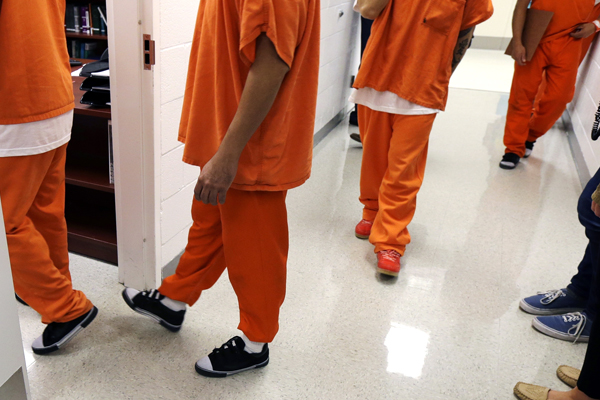
Did it affect your son at all?
No, because he has a father, that’s my ex-husband. It didn’t impact him so much. Our relationship and our marriage impacted him more once he came home and it wasn’t what we all hoped it to be. Especially, being that they had a great relationship as stepfather and son when he was incarcerated. He could talk to him, they talked freely. They express love to one another, so it was devastating for my son to not be able to see us post-incarceration.
Is it okay if we talk about your relationship with your husband or your ex-husband, what happened afterwards?
Yes, because it is a taboo subject on my Instagram page. I made a little conversation in regards to the topic of marriages that don’t last beyond the wall and how it’s a taboo subject. We talk about prison wives are strong, they have this great community, and I’m your ride or die. When it dies, nobody wants to talk about that, and the reason why it didn’t die.
When we do talk about it, we’re talking about it from a space of real anger, resentment, or bitterness, and that should never be the case. It is a conversation when we do a seminar, partnering with another organization. For us to do a seminar, and we’re talking about intimate relationships in incarceration, and that is something that we will address and talk about and why marriages in incarceration don’t last.
I would’ve never imagined if that would have been the case between myself and my ex-husband, but it was a communication breakdown. We were not on the same page. It’s hard. I can’t speak for him. I can never ever speak for him, but I knew when he had an opportunity to transfer from the state that he’s in to transfer to the state that I’m in, so we could build this happily ever after, and he didn’t. He canceled the transfer. I knew that was opening up a door that we couldn’t come back out from. I tried a lot. I get emotional about it sometimes, but I’m good now. I just knew I had to move on.
Thank you for sharing and that was not easy. A lot of times life isn’t easy, especially when we’re dealing with incarceration, our loved ones, and things that don’t turn out the way that we wanted them to. I appreciate your sharing because these conversations help other people.
When I talk to other women, the stories that I’ve heard pale in comparison to my experience. The reality is that it’s not so much that this happened. The real conversation needs to be, why did this happen? Why wasn’t it sustained beyond the wall? It’s not even what I could have done differently is what needs to be done differently in this transition. It goes back to the entire family and to expectations and the support. I can’t say as he was traumatized, as he was this, and he was that. I can’t speak on those things, but I will say that it’s very likely, my husband was released in the height of a pandemic in a city that was totally shut down that was the hub of COVID-19.
He was released abruptly, thrown into the COVID situation, and then having over twenty years of incarceration, what does that look like to a person? When there were beepers, when you went in, there weren’t iPhones. It wasn’t this and then you’re in a city that never sleeps, in a town that’s riddled with COVID-19 and you’re shut down now, even in the home. That in and of itself is a traumatic situation. We in a free world are traumatized because we’re locked up in our homes for the COVID crisis. We in and of ourselves are traumatized. I can’t even think about what he was dealing with in his own humanity.
We should not talk from a space of real anger, resentment, or bitterness. Share on XWhen we talk about coping mechanisms and oftentimes, you go into incarceration because when someone is incarcerated, there are many people who are innocent of their crimes and there are many more people who are not. We have to examine the reasons why people go into prison, that you lack something.
You have adverse childhood experiences that shape your behavior and mindset. Most of them go into prison with trauma. They experienced trauma in prison, and then you come home to trauma. It’s important to pull back those layers of trauma that we, as individuals with loved ones who were incarcerated and not faced and have experienced in order for us to develop healthy coping mechanisms.
Unfortunately, we’re not developing healthy coping mechanisms in prison. You’re not doing that, even though the communication is so flowery and beautiful in your engagement with your loved one in prison. The phone calls are beautiful and brief. The letters are blended and they say these wonderful tales that you’re looking forward to. The communication when it breaks down, when you leave, because the skills or the coping mechanisms that one uses in prison are not the same coping mechanisms and skills that you use outside of prison. They’re in survival mode. They’re using those same mechanisms to survive in the free world.
There are these distractions. There’s this needs to catch up, and particularly, if you do return to the same environment in which you left and you see those people that you may have grown up with and those things that they may have acquired or accomplished. Those are real unrealistic expectations that they have placed in their mind.
We, human nature, those who’ve been home forever, have these expectations. “You can do this or you can do that.” We don’t help with that transition in a way. I can’t say that I wish that I could’ve done something differently, because I feel that I did everything in my power to make it work, but once that decision was made to postpone the transfer, then that opened up a door to, “I’ve waited for sixteen years. I can’t wait any further or longer,” and that’s pretty much what started that process.
You did the best that you could and that’s all we can all do. We do the best that we can and with what we know at the time. You can’t look back. You’ve got to look forward and bond with some of the other things that you’ve done. Let’s talk about your books. You’ve written some books, and you’ve helped others with books. If you want to tell us a little bit about the books you’ve written and the other people that you’ve helped.
I am a writer. I’ve been writing since I was a very small child. The first time that I was published was in a national poetry anthology, and that was at the age of eleven. When I was seventeen, I was published in the Rikers review. We know about Rikers Island and everything that’s going on, on that prison in New York City.

I had a featured spread in the literary magazine when I was seventeen years old, and had a prison artist draw a picture for everything. That was at seventeen. I’ve been writing consistently since I was a young girl. I also used to put all of my poetry in a collection. I would create my own books at that time, which started that fascination that I have with self-publishing and independent publishing.
My first book was published when I was in college. I self-published it. It was a rudimentary book publication, but it’s all well. It was my first time doing it and making money from it, and it did well. That was Fruit of My Womb. It has my signature poem, Nine Lives: Kat’s Story. Kat is my nickname, and that tells my testimony and my life overall.
After Fruit of My Womb, I went on and got an eBook Devotional. Several years after that, my eBook Devotional is available on Amazon. It’s a 31-day devotional, and then my latest poetry collection is Metamorphosis of Rhythm, and it is also available on Amazon, a poetry collection. I’ve been published in anthology as well. It’s called A Second Helping of Gumbo for the Soul: More Liberating Stories and Memories to Inspire Females of Color.
In that particular anthology, I do talk about my relationship with my ex-husband, and it’s called Puppy Love because we were childhood sweethearts, so to speak, and a variety of different things that I’ve written over the years. I’ve been published in the China Daily because I used to live overseas in China, and in local newspapers and such.
I also helped others who are interested in self-publishing. I have a small business called Katalyst Ink. I also serve as a catalyst for those who have unique and wonderful stories that they want to tell. I helped to coach them through that self-publishing process and also to edit and proofread their books. My two most recent books are His Life, Her Story, which is a story about a woman who married her childhood sweetheart after he did ten years in prison, and she was with him throughout that time.
The trauma and the mental health challenges that she faced post-incarceration and when he returned. Christ for Change: The Journey from Incarceration to Advocacy by Formerly Incarcerated Woman, who drafted legislation in the state of New York to encourage about the implementation of mental health services for those in prison.
We have to take accountability for the choices that we make. Share on XUpon their return, holistic approach to healing and wellness mentally. It does not just go for the incarcerated person. It also goes for the correctional officers and anyone that deals with those who are incarcerated and their families as well. Those are the things that I do for profit, writing books and helping people write their books. It brings me great pleasure and enjoyment to be able to tell stories and help other people share their stories as well.
Sharing stories is so important and it helps so many people. When people read other people’s stories, they learn something, but they also find that they’re not alone, that there are other people that are having experiences. We can’t compare our stories or experiences to anybody else. Everybody has their own journey. Everybody experiences things differently. Please, do not compare that, “They had it worse than me or mine wasn’t so bad.” Don’t minimize it. However, there is healing, by reading other stories, by going to groups like Prison Families Alliance, by being involved with impact, and finding a group in your area, whatever it is, do what you need to do to take care of yourself.
That is so true, because I’m guilty of that myself and I even say looking people when I deal with, women who have been in similar situations. They look at my story. There’s one particular person that I have in mind. It’s overwhelmed because the husband may be returning home soon and has the fear. I had to encourage her and say, “My story is my story. My husband was my husband. Your story is not my story, so you cannot internalize my experience and think that what happens to me, it’s going to happen to you or whatever. The universe doesn’t work like that.”
We can only do the best that we can in what we have, and try. We have to try to do our very best and we always have to lead with love. That’s one of the things I try to dispel too with I.M.P.A.C.T., especially now that I’m getting women whose relationships did not last. There are bitterness, anger, and resentment, and they can’t move on and they’re stuck. It was those conversations, the name calling or whatever it is, that’s nonproductive. It’s because we have to recognize that when we had a chance and a choice. I had a chance and a choice to marry my husband while he was incarcerated. I did that.
No one arrested me and made me do it. I did it out of my own volition in my love and concern for him and wanting a future just as well as he had a chance and choice to relocate and start a new life and all of that. We all have a chance and a choice, but when we make our choices, we always have to take accountability for our choices that we make, and we cannot blame the other person, because sometimes we never know what the other person is going through, has to endure, or deal with. We only can be responsible for our actions and how it makes us feel and moving on.
I have no ill will against my ex-husband. I wish him well, a great future, and all that he could and should have in his future, but I love me more. As much as I loved and cared for him, I have to invest that time and love into myself, so then that way I can continue to do the work that is loving and helping people be the better person that they can be.
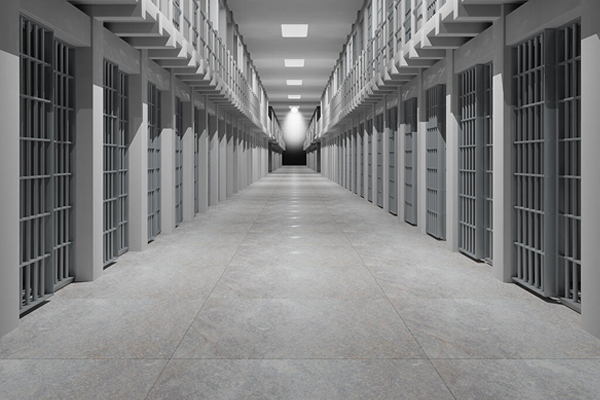
I hope everybody read that. It was so well said. Thank you. It’s important information. We’re getting to the end of our time and what I usually ask everybody is what we can leave the audience with. What is something that helped you the most or that you think can help somebody else the most that has a loved one that’s incarcerated?
What has helped me the most is to help others, to not be so wrapped in yourself that you don’t give of yourself to others. To help build community and support. We need community. I spent so many years not talking or telling my story to others. My husband is incarcerated and saying it. It is what it is. We have to allow ourselves the opportunity to be around other people, to find that community and find that support because it’s necessary. Don’t be on an island by yourself. Get around like-minded people and find the support that you need, where you can share your trials, triumphs, tribulations, and everything.
Be honest with yourself about what you’re going through. Everybody don’t wake up happy and go to bed happy. Be honest with what you’re feeling and dealing with. Find that community that will support you when you can’t find the strength to support yourself. Be sure that when your loved one transitions, there’s a network of support. Not only for that person that comes home, but there’s a network of support for you that is maintained beyond the wall, because both of you are going to need it to be able to have healthy communication, develop healthy coping mechanisms for you to have a life that everyone deserves. It is possible. There’s always hope and healing.
Important Links:
- Latasha Drax – LinkedIn
- I.M.P.A.C.T. Beyond the Wall
- Instagram – I.M.P.A.C.T. Beyond the Wall
- Metamorphosis of Rhythm
- A Second Helping of Gumbo for the Soul: More Liberating Stories and Memories to Inspire Females of Color
- https://PrisonFamiliesAlliance.org
About Latasha Drax
 Latasha Drax, founder of I.M.P.A.C.T. Beyond the Wall, began her journey to advocacy and support for the families of incarcerated loved ones during her 16 marriage to her ex-husband while incarcerated. With a background in criminal justice, government, and law and public policy, she lobbies for prison and parole reform and supports legislation to address Post Incarceration Prison Disorder and the trauma of mass incarceration on incarcerated people and their families. Latasha is an independent author and also offers editorial services for writers looking to self-publish.
Latasha Drax, founder of I.M.P.A.C.T. Beyond the Wall, began her journey to advocacy and support for the families of incarcerated loved ones during her 16 marriage to her ex-husband while incarcerated. With a background in criminal justice, government, and law and public policy, she lobbies for prison and parole reform and supports legislation to address Post Incarceration Prison Disorder and the trauma of mass incarceration on incarcerated people and their families. Latasha is an independent author and also offers editorial services for writers looking to self-publish.
Love the show? Subscribe, rate, review, and share!
Join the Prison: The Hidden Sentence Community today:

Leave a Reply